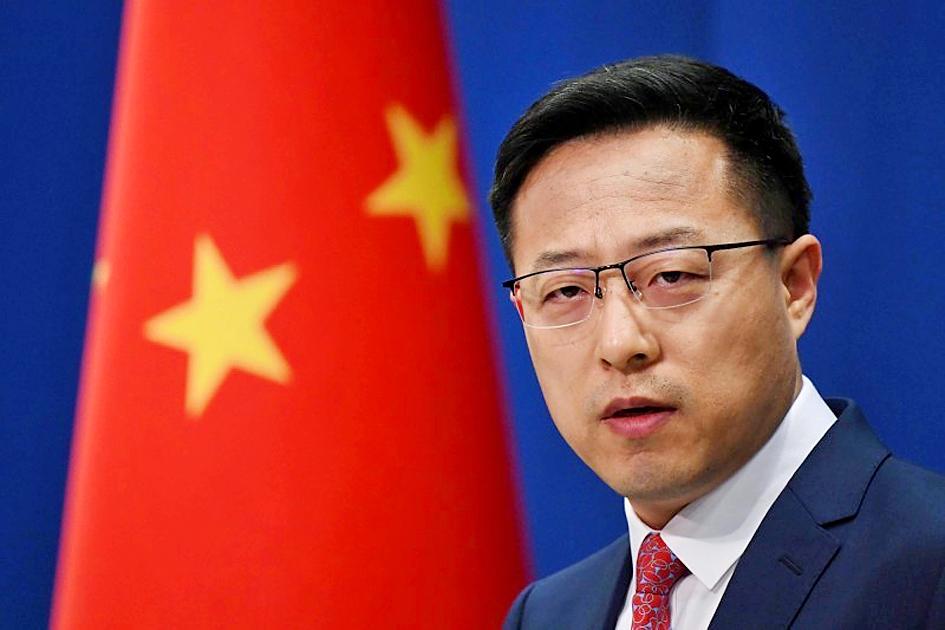The White House is moving forward with three sales of advanced weaponry to Taiwan, sending in recent days a notification of the deals to the US Congress for approval, five sources familiar with the situation said on Monday.
Asked about the report, the Taipei Economic and Cultural Representative Office in Washington said it had no comment.
The news broke last month that as many as seven major weapons systems were making their way through the US export process, as US President Donald Trump’s administration increases pressure on China.

Photo: AFP
Leaders of the foreign affairs committees of the US Senate and House of Representatives were notified that three of the planned weapons sales had been approved by the US Department of State, which oversees foreign military sales, the sources said, speaking on condition of anonymity.
The informal notifications were for a truck-based rocket launcher made by Lockheed Martin Corp called a high-mobility artillery rocket system (HIMARS), long-range air-to-ground missiles made by Boeing Co called SLAM-ER, and external sensor pods for F-16 jets that allow the real-time transmission of imagery and data from the aircraft back to ground stations.
Notifications for the sale of other weapons systems, including large, sophisticated aerial drones, land-based Harpoon anti-ship missiles and underwater mines, to deter amphibious landings, have yet to reach Capitol Hill, but these were expected soon, the sources said.
“As a matter of policy, the United States does not confirm or comment on proposed defense sales or transfers until they are formally notified to Congress,” a State Department spokesman said.
Congress’ foreign affairs committees have the right to review, and block, weapons sales under an informal review process before the State Department sends its formal notification to the legislative branch.
US lawmakers, who are generally wary of what they perceive as Chinese aggression and supportive of Taiwan, were not expected to object to the arms sales.
News that new arms sales were moving forward came after senior US officials last week repeated calls for Taiwan to spend more on its own defense and carry out military reforms to make clear to China the risks of attempting to invade.
It comes at a time when China has significantly stepped up military activity near Taiwan and as US-China relations have plunged to the lowest point in decades ahead of the US presidential election.
In Taipei, the Ministry of Foreign Affairs on Monday said that the government had not received official notice of the arms sale, but would explain relevant details to the public once Washington informs the Legislative Yuan.
The government would continue to deepen the secure friendship that it has with the US amid China’s increasing efforts to disrupt regional security across the Taiwan Strait, the ministry added.
In Beijing, the Chinese Ministry of Foreign Affairs yesterday said that it would make a “legitimate and necessary” response to additional US arms sales to Taiwan.
The US should immediately halt all weapons sales to Taiwan, ministry spokesman Zhao Lijian (趙立堅) told a daily news briefing.
Additional reporting by Dennis Xie

The CIA has a message for Chinese government officials worried about their place in Chinese President Xi Jinping’s (習近平) government: Come work with us. The agency released two Mandarin-language videos on social media on Thursday inviting disgruntled officials to contact the CIA. The recruitment videos posted on YouTube and X racked up more than 5 million views combined in their first day. The outreach comes as CIA Director John Ratcliffe has vowed to boost the agency’s use of intelligence from human sources and its focus on China, which has recently targeted US officials with its own espionage operations. The videos are “aimed at

STEADFAST FRIEND: The bills encourage increased Taiwan-US engagement and address China’s distortion of UN Resolution 2758 to isolate Taiwan internationally The Presidential Office yesterday thanked the US House of Representatives for unanimously passing two Taiwan-related bills highlighting its solid support for Taiwan’s democracy and global participation, and for deepening bilateral relations. One of the bills, the Taiwan Assurance Implementation Act, requires the US Department of State to periodically review its guidelines for engagement with Taiwan, and report to the US Congress on the guidelines and plans to lift self-imposed limitations on US-Taiwan engagement. The other bill is the Taiwan International Solidarity Act, which clarifies that UN Resolution 2758 does not address the issue of the representation of Taiwan or its people in

US Indo-Pacific Commander Admiral Samuel Paparo on Friday expressed concern over the rate at which China is diversifying its military exercises, the Financial Times (FT) reported on Saturday. “The rates of change on the depth and breadth of their exercises is the one non-linear effect that I’ve seen in the last year that wakes me up at night or keeps me up at night,” Paparo was quoted by FT as saying while attending the annual Sedona Forum at the McCain Institute in Arizona. Paparo also expressed concern over the speed with which China was expanding its military. While the US

SHIFT: Taiwan’s better-than-expected first-quarter GDP and signs of weakness in the US have driven global capital back to emerging markets, the central bank head said The central bank yesterday blamed market speculation for the steep rise in the local currency, and urged exporters and financial institutions to stay calm and stop panic sell-offs to avoid hurting their own profitability. The nation’s top monetary policymaker said that it would step in, if necessary, to maintain order and stability in the foreign exchange market. The remarks came as the NT dollar yesterday closed up NT$0.919 to NT$30.145 against the US dollar in Taipei trading, after rising as high as NT$29.59 in intraday trading. The local currency has surged 5.85 percent against the greenback over the past two sessions, central